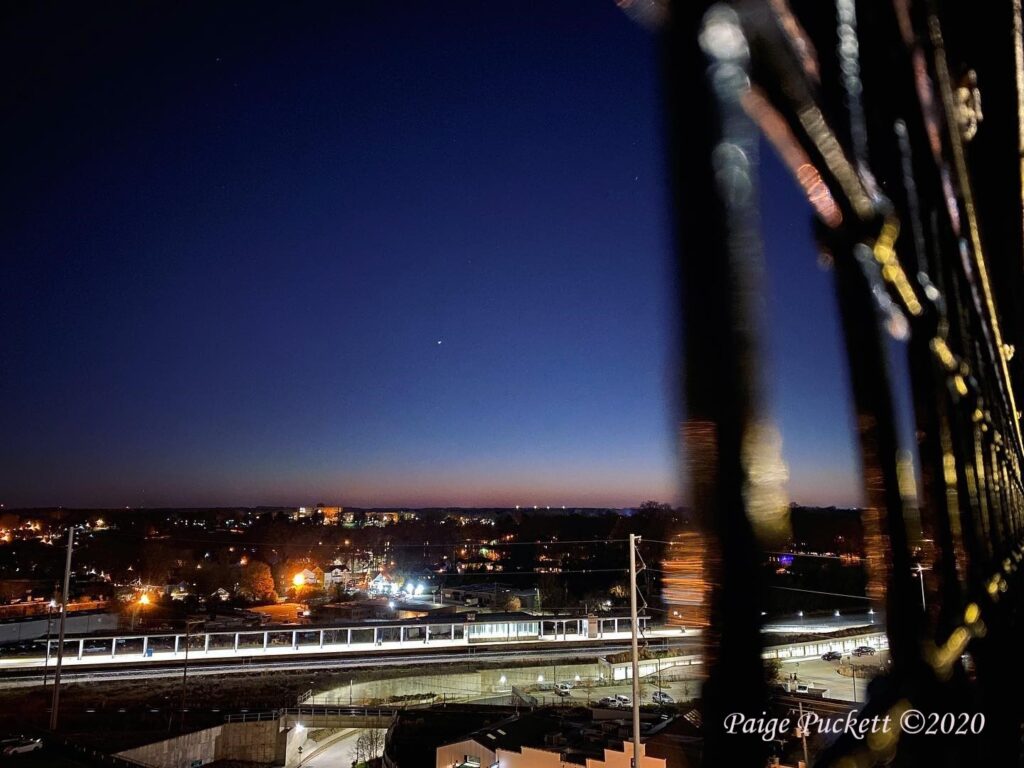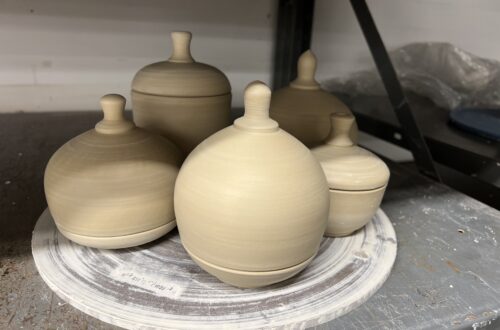Processing 2020
Of all the years, 2020 has been one for the books. Years from now we will look back at the headlines of this year’s headlines with hearts and mouths still agape. Personally, I’ve never spent as much time as I have this year reflecting on deep and hard topics. The beginning of December marked the close of my first four decades, and we celebrated in a way that was most appropriate to the times, just the four of us, quietly at home with no shortage of love or gratitude. I’ve tried my darndest to maintain the narrative that we are not stuck at home with each other but are so blessed to get be together with our favorite people in the world. With two boys teetering on the edge of teen years, I’m holding the last strands of home being the place they still want to be. For our relationships in these four walls, it’s been a very good year. It’s been peaceful and simple even as it has been hard and disappointing at times. That we still like each other, and I’d say we like each other even more, is the very best. I know that is not something all families can claim.

I’ve done a lot of thinking and little writing. The voices all around are so loud that I feel my thoughts are better left expressed to just a receptive few rather than setting up my own soap box in an already crowded square of opinions. I have at times managed to post a few of my thought here and there as I’ve processed the onslaught of 2020, so for posterity’s sake, I’ll share those here, edited. They are nothing new at this time of sitting at my laptop, but it’s been an interesting exercise to look back at the year in posts and see where my heart and mind were carried.
This entire year I’ve struggled with how to respond to the Church’s failure to appropriately respond to the pain expressed within our society over historical racism, present injustice, the pandemic, political rage and deceit, and the unrighteous pursuit of power by the self-appointed righteous. Over the past few years (maybe more than just a few), I’ve found it next to impossible to both hold onto Jesus with one hand and American cultural Christianity with the other. As I looked back and forth from one hand to the other, they looked less and less alike. There have been times I’ve felt so soul-thin I could just let it all go, but I’ve found that Jesus has always had his arms fully around me. He tells me to release my grip and rest my arms around his neck and that it will all play out okay. The emotional discord of the year has been a lot for someone who empathizes deeply, even as I tend to thrive in the philosophical gray areas. It’s been a struggle to move, talk and live in love and not by fear. What I keep coming back to is that I can’t be motivated by Love unless I am dwelling on it.
“Finally, brothers and sisters, whatever is true, whatever is noble, whatever is right, whatever is pure, whatever is lovely, whatever is admirable—if anything is excellent or praiseworthy—think about such things.” – Philippians 4:8
When I’m being stretched to open my heart in new ways, it can sometimes feel like if I open my heart too wide, God might just slip out. Faith might escape me. However, God doesn’t just dwell in me, He holds me in His palm, and there’s not a chance the faith He’s granted will fade away. So again, today I’m asking my self, “What have I feared?” I think my fear is and always has been that if I open my heart too much to people outside of my strict faith background to bear witness to their lives, pain and cries, I might just lose a faith that I recognize because bearing witness to pain isn’t enough. It compels action. What if faith in Jesus leads me to love, with active love, the people that Jesus loves? I say that with irony and a kick to my own butt, because that has always been his calling for us. He has never called us to live in safe little communes with people just like ourselves.
As I’ve reflected on my evangelical roots, I see a different fear. I see a people that have enjoyed being the cultural norm, being the decision-makers, and being the respected voices. It has not been admirable or right. It has not been lovely or pure. They have been called out loudly this year. I see they a fear of loss of power, and they confuse that loss of political power with persecution. To them I say, every now and then it’s good to look beneath your feet to make sure you are standing on rock and not squatting on scaffolding meant to prop up institutions dedicated to the preservation of power never promised by God. It was so hard for the faith leaders of Jesus’s time to understand the company he kept, and surely their old wine skin hearts would have cracked to make room for him and the people he loved. When they lusted for power rather than waiting for the promise, they just might have missed Jesus.
In the insanity of this 2020 election and in the response to the pandemic, I fail to see the nature of Christ within the entangling of American politics and religion. A “Christianity” that seeks political power and trusts liars and abusers to usher it in is not one that Jesus would see His own reflection in. In scripture, we never see Jesus seek out political power. Instead, he submits to death on the cross. He doesn’t try to clear His name. He doesn’t try to get even. He doesn’t call his abusers names. He forgives them. This is the life we are to emulate. In light of the current definition of a “winner”, Jesus was the ultimate loser. But after life, power, and dignity were lost, He was lifted up by God. He now gets all the glory. He wins souls and rules hearts. If someone is promising you a “win” or “power”, ask why you are seeking from them what Jesus himself didn’t even demand from God. This verse from Lamentations 3 is the prayer of my heart, “The Lord is my portion. Therefore I will wait for Him.”
Where I especially see a lack of reflection of Jesus is in the dehumanizing rhetoric used about others. Jesus brought dignity to all people who came to him seeking his healing – the poor, the disabled, the hungry, all races, all nationalities, the religiously oppressed, those seeking him out in the dark to escape the notice of the religious elite. He came down hard against anyone attempting to keep them out. He freed people from the oppression of sin AND of death, hunger, sickness, isolation and rejection. Jesus liberates. He never mocks those need him. Instead, he draws them in.
So how do I respond to that calling out, because surely I was brought up with all the benefits of it?
I listen and feel. It’s always easier to seek emotional absolution through conspiracies and shifting blame, but what Jesus teaches us on the cross is to enter into world’s suffering, die to entitlement, and give up power to save and redeem the lives of all. To be clear, you, I, we are no faultless savior. We are His redeemed, and as such, we are given the privilege of sharing in the redemption work, which starts by seeing the brokenness in the world and ourselves. I ask myself, “Who am I keeping out? Who am I drawing in? Whose stories of oppression am I willing to hear? Whose do I cover my ears to?” If I have the love of Jesus, I should lay down my defenses and see others as those whom Jesus loves.
I take stock of my sphere of influence. I’m the mother of two white boys, the wife of a white man. I love my white men. I see how they move through this world and I love them deeply and respect them deeply. I know they will never know what it’s like to be anything other than a white man, but I believe fully and hope deeply that they will have open hearts to carry the burden of others who don’t get to move through this world as they do. I pray they will lift them up, make room for them, be humble and kind, apologize when needed, correct course when in the wrong. I can’t keep quiet because there are people I love who don’t get to move through the world like I do. A yard sign won’t cut it. Teaching my boys, opening my heart, and giving strangers, friends and students the chance to tell their story – those will be my signpost.
I speak up and invite in. Seeing injustice and holding it up to the cross of Jesus has certainly given me new perspectives on what I think is worthy of speaking up about. Jesus gives us accessibility to life, to the ears and arms of God. He laid down power at the cross to give life to all. So while I earlier condemned the entanglement of religion and politics on account of the pursuit of power, I cannot help that the nature of Christ and his work on the cross shape my political, social and economic views. I’ve thought a lot about how the systems holding our society together have not worked for all equally. When I look to Jesus for how to respond, I see that he seeks out those rejected by “the system” due to gender, religion, culture, disease or disability and brings them into his presence. He meets them on the street, in their homes, in the cover of dark, at the well and in their most shameful moments. I also reflect on the friends who lowered their paraplegic friend through the roof of a house Jesus was teaching in to be healed by Jesus. The systems would have kept them all these who needed him away, but Jesus drew them in, and likewise, those who knew the healing power of Jesus broke down the walls to bring their friends to him as well.
So in response to unjust systems or the systems that aren’t working, we must affect change. If we are going to hold mentally disabled people accountable for their crimes, we should also hold accountable the systems that failed to provide accessible paths to diagnosis, treatment and attainable wellness. If we condemn families living in poverty for poor nutritional choices, we should condemn the systems that failed to bring grocery stores with affordable healthy options to their neighborhoods. If we judge children with learning differences for not rising to meet educational standards, we should judge the systems that fail to provide them with the tools to achieve them. We should never value the standards over the people. Affect change in the systems. Help provide tools. Value people.
In Christianity we can look to the cross to see the ultimate demonstration of the standard bearer proving accessibility to all. The work of the cross was compassion. Jesus saw that we would never be able to achieve the standards on our own, so he lifted us up. God’s system isn’t broken but rather is the great equalizer. We come to the cross with penniless pockets, no advantages of culture, race, rank or political power, and we do so with joy!
So I leave 2020 and enter 2021 with these words from Philippians 2 as the way forward:
2 Therefore if you have any encouragement from being united with Christ, if any comfort from his love, if any common sharing in the Spirit, if any tenderness and compassion, 2 then make my joy complete by being like-minded, having the same love, being one in spirit and of one mind. 3 Do nothing out of selfish ambition or vain conceit. Rather, in humility value others above yourselves, 4 not looking to your own interests but each of you to the interests of the others.
5 In your relationships with one another, have the same mindset as Christ Jesus:
6 Who, being in very nature God,
did not consider equality with God something to be used to his own advantage;
7 rather, he made himself nothing
by taking the very nature of a servant,
being made in human likeness.
8 And being found in appearance as a man,
he humbled himself
by becoming obedient to death—
even death on a cross!
9 Therefore God exalted him to the highest place
and gave him the name that is above every name,
10 that at the name of Jesus every knee should bow,
in heaven and on earth and under the earth,
11 and every tongue acknowledge that Jesus Christ is Lord,
to the glory of God the Father.


